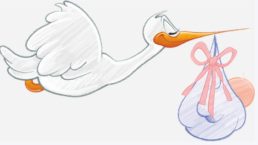Acupuncture for Migraines & Headaches
Gold Coast Mobile Acupuncture
Migraine
is a condition that involves recurrent headaches which can result in attacks
that last 4 – 72 hours. The headaches involved in a migraine attack usually include
unilateral location, pulsating quality, moderate to severe intensity, can be made
worse by physical activity and can also be associated with nausea and/or
photophobia (sensitivity to light) or phonophobia (sensitivity to loud noises).
The
intense pain that headache and migraine suffers endure can be quite
debilitating and can impact every aspect of their life. Acupuncture has been
used for thousands of years to give quite significant pain relief. This relief
is achieved without the side effects that come with prescription and over-the-counter
drugs.
Since
the early seventies, there have been many studies conducted around the world
showing the effectiveness of acupuncture in the treatment of migraines and
headaches1.
Recent
studies have further supported the role of acupuncture to not only be effective
in relieving pain of a migraine attack, but is also to be effective in
preventing future attacks2,3. There is also growing evidence that
acupuncture is as effective as many of the standard pharmaceutical agents and
with fewer side effects4. A Cochrane database systematic review of
the effectiveness of acupuncture for migraine prophylaxis (treatment to prevent
attacks), concluded that acupuncture is an effective treatment for the
prohylaxis of migraines5.
Another
Cochrane systematic review, this time looking at tension-type headaches, found
acupuncture to be significantly superior to both routine care and sham
acupuncture in reducing the frequency and severity of the headaches6.
In
addition to these reviews, there have been many quality randomised controlled
trials (RCTs) that have found favourable effects of acupuncture in the
treatment of migraines and headaches. Acupuncture has been shown to be effective
in reducing the use of medication for acute migraine attacks7,8. Another
recent RCT found acupuncture to be more effective than medical prophylaxis in
moderate to severe headaches9.
If
you or someone you know suffer from migraines or headaches, get them in to an
acupuncturist to get it treated.
References
- Zhang, X. T., Li, X. Y., Zhao, C., Hu, Y. Y., Lin, Y. Y.,
Chen, H. Q., ... & Tian, G. H. (2019). An Overview of Systematic Reviews of
Randomized Controlled Trials on Acupuncture Treating Migraine. Pain
Research and Management, 2019. - Linde K, Allais G, Brinkhaus B, Manheimer E, Vickers A & White A
2009. ‘Acupuncture for migraine prophylaxis’. Cochrane Database Systematic
Review. - Remy R,
Coeytaux M & Befus D 2016. ‘Role of Acupuncture in the Treatment or
Prevention of Migraine, Tension-Type Headache, or Chronic Headache Disorders’.
The Journal of Head & Face Pain. - Zhang, N., Houle, T., Hindiyeh, N., &
Aurora, S. K. (2019). Systematic Review: Acupuncture vs Standard
Pharmacological Therapy for Migraine Prevention. Headache: The Journal of
Head and Face Pain. - Linde K,
Allais G, Brinkhaus B, Fei Y, Mehring M, Vertosick E, Vickers A & White A
2016. ‘Acupuncture for the pre-vention of episodic migraine’. Cochrane Database Systematic Review. - Linde K,
Allais G, Brinkhaus B, Fei Y, Mehring M, Shin B, Vickers A & White A 2016.
‘Acupuncture for the pre-vention of tension- type headache’. Cochrane Database Systematic Review. doi:10.1002/14651858.CD007587. - Wang L,
Zhang X, Guo J, Liu H, Zhang Y, Liu C, Yi J, Wang L, Zhao J & Li S 2012. ‘Efficacy
of acupuncture for acute migraine attack: A multicenter single blinded,
randomized controlled trial’. Pain Medicine. - Li Y,
Liang F, Yang X, et al. Acupuncture for treating acute attacks of migraine: A
randomized controlled trial. Headache. doi: 10.1111/j. - Yang C, Chang M, Liu P, Li T,
Hsieh C, Hwang K & Chang H 2011. ‘Acupuncture versus topira-mate in chronic
migraine prophylaxis: A randomized clinical trial’. doi:
10.1177/0333102411420585.
Morning Sickness
Alleviating
Nausea and Vomiting in Pregnancy
Nausea
and vomiting in pregnancy (more commonly known as morning sickness) usually
occurs between 6 and 12 weeks and goes through to 20 weeks. These symptoms can
persist longer than 20 weeks in 20% of women. The prevalence of nausea is
50-80% and of vomiting/retching is around 50% of all pregnant women1.
A
review of randomised controlled trials and systematic reviews on acupuncture in
pregnant women have found evidence of acupuncture being particularly effective
in treating nausea in pregnancy, and further found it can also be effective in
the treatment of back and pelvic pain, correcting breech presentation and pain
relief during labour2.
Not
only has Acupuncture been found to be effective in morning sickness, but so too
has Acupressure3,4. Acupressure is something that Acupuncturists can
show their patients to do at home. Simple techniques such as massaging a point
called Pericardium 6, can help alleviate the nausea experienced by many
pregnant women5.
When the vomiting and
nausea are so severe, it can result in Hyperemesis gravidum. It is a disorder
characterised by severe and constant nausea and vomiting that can cause loss of
more than 5% of body weight, dehydration, electrolyte imbalance, acidosis, or
ketosis6. Many studies have found Acupuncture to be an effective
treatment of Hyperemesis gravidum6-9.
One study has also
compared the effectiveness of Acupuncture treatment to pharmacological
intervention (metoclopramide/vitamin B12) in the treatment of hyperemesis
gravidarum. They found both treatments to be just as effective in reducing
vomiting episodes as well as reduced intensity of nausea, but found Acupuncture
to be more effective than drugs in improving functioning. Reports from this
study suggest that the psychosocial variables could represent a further
advantage of Acupuncture treatment9.
Acupuncture
has been found to be a safe treatment of nausea and vomiting in pregnant women
with no serious side effects10. So don’t put up with nausea and vomiting
in pregnancy, have it treated by a qualified Acupuncturist.
Simon
Want
Doctor of
Chinese Medicine
BHlthSc(Acu),
BBiomedSc, MAppSc(ChinHerbMed)
References
- Van den Heuvel, E, Goossens, H, Vanderhaegen, H, Sun, H & Buntinx, F 2016, ‘Effect of acustimulation on nausea and vomiting and on hyperemesis in pregnancy: a systematic review of Western and Chinese literature’, BMC Complementary & Alternative Medicine, vol. 16, no. 13.
- Smith, C & Cochrane, S 2009, ‘Does acupuncture have a place as an adjunct treatment during pregnancy? A review of randomised controlled trials and systematic reviews’, Birth, vol. 36, no. 3, p. 246-253.
- Werntoft, E & Dykes, A 2001, ‘Effect of acupressure on nausea and vomiting during pregnancy. A randomised, placebo-controlled, pilot study’, Journal of Reproductive Medicine, vol. 46, no. 9, p. 835-839.
- Can Gurkan, O & Arslan, H 2008, ‘Effect of acupressure on nausea and vomiting during pregnancy’, Complementary Therapies in Clinical Practice, vol. 14, no. 1, p. 46-52.
- Habek, D, Barbir, A, Habek, J, Janculiak, D & Bobic-Vukovic, M 2004, ‘Success of acupuncture and acupressure of the Pc 6 acupoint in the treatment of hyperemesis gravidarum’, Research in complementary and natural classical medicine, vol. 11, no. 1, p. 20-23.
- Shin, H, Song, Y & Seo, S 2007, ‘Effect of Nei-Guan point (P6) acupressure on ketonuria levels, nausea and vomiting in women with hyperemesis gravidarum’, Journal of Advanced Nursing, vol. 59, no. 5, p. 510-519.
- Mao, Z & Liang, C 2009, ‘Observation on therapeutic effect of acupuncture on hyperemesis gravidarum’, Chinese Acupuncture & Moxibustion, vol. 29, no. 12, p. 973-976.
- Zhang, H 2005, ‘Observation on therapeutic effect of acupuncture and moxibustion on hyperemesis gravidarum’, Chinese Acupuncture & Moxibustion, vol. 25, no. 7, p. 469-470.
- Neri, I, Allais, G, Schiapparelli, P, Blasi, I, Benedetto, C & Facchinetti, F 2005, ‘Acupuncture versus pharmacological approach to reduce Hyperemesis gravidarum discomfort’, Minerva Gynecology, vol. 57, no. 4, p. 471-475.
- Smith, C, Crowther, C & Beilby, J 2002, ‘Pregnancy outcome following women’s participation in a randomised controlled trial of acupuncture to treat nausea and vomiting in early pregnancy’, Complementary Therapies in Medicine, vol. 10, no. 2, p. 78-83.
Insomnia
Insomnia
Sleep is essential for good health and wellbeing throughout our lives. Getting enough sleep at the right hours can not only protect quality of life and help us function effectively throughout the day, but more importantly, it will protect your mental and physical health.
Much healing and repair of your heart and blood vessels occurs whilst we are asleep. If we do not get enough of it, your risk of developing several chronic health problems raises. These include cardiovascular diseases such as heart disease, high blood pressure and stroke1.
The immune system also depends on sleep to stay optimal. Sleep deprivation will lower your immune system and compromise how well you are able to fight off infection2.
Sleep deprivation can also increase your risk of obesity. Sleep maintains a healthy balance of ghrelin (the hormone that makes you feel hungry) and leptin (the hormone that makes you feel full). Lack of sleep has been linked with increased levels of ghrelin and decreased levels of leptin. This makes you feel hungrier than when you are well rested. It can also alter glucose metabolism by interfering with the hormone insulin and can decrease energy expenditure. These link little sleep with increased risk of obesity and diabetes3.
Insomnia is the most common sleep complaint, affecting approximately 9-15% of the population4. Acupuncture and Chinese herbal medicine is fantastic in the treatment of such sleep disorders.
Randomised controlled trials have found Chinese herbal medicine (CHM) to be significantly effective in the treatment of insomnia 5 6. The Chinese herbal formulas, Suan Zao Ren Tang and Xiao Yao Tang have been found to have anxiolytic and sedative effects7 8, further more, some of the ingredients (Suan Zao Ren, Chuan Xiong, Chai Hu and Dang Gui) can act on GABAA (target receptor for benzodiazepine drugs – commonly prescribed drug for insomnia) and dopamine receptors9 10.
Chinese herbal medicine (CHM) can also be used effectively alongside existing medication for insomnia. A study compared CHM plus Western medication with Western medication alone, (medication used was a benzodiazepine drug derivative, estazolam at 1 mg/day). It was found that the combination of CHM with the medication was significantly more effective immediately after treatment than the group receiving medication alone11.
Not only is CHM very effective for the treatment of insomnia, but studies have indicated that it is also safer. A meta-analysis of 19 studies which compared CHM with Western medication showed that Western medication was more likely to have adverse events (sixteen studies were comparing CHM to benzodiazepine, two used trazodone and one with methaqualome)12.
Further References:



